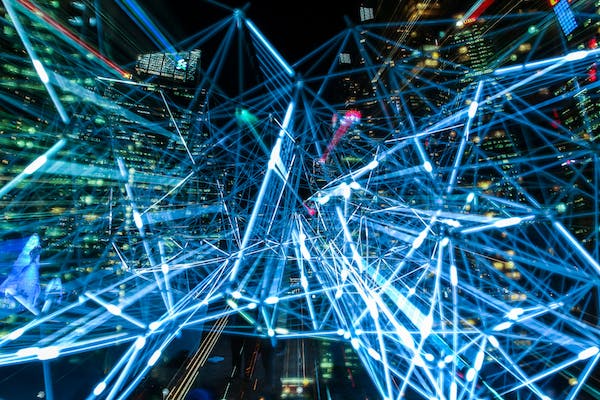
How Artificial Intelligence Is Transforming The World
Table of Contents
Artificial Intelligence (AI) has swiftly become one of the most intriguing and transformative technologies of our time. From sci-fi dreams to real-world applications, AI has captivated our imagination and revolutionized various industries. It’s no longer a distant concept confined to futuristic movies; it is now an integral part of our everyday lives. In this blog post, we will explore the evolution of AI, its diverse applications across industries, the impact on job markets, ethical concerns surrounding it, and the exciting advancements that lie ahead. So buckle up and get ready to dive into the fascinating world where human ingenuity meets artificial intelligence!
The Evolution of AI: From Science Fiction to Reality
Artificial Intelligence, or AI for short, has come a long way since its inception as a concept in science fiction. What was once seen as mere fantasy is now a reality that is shaping our world in profound ways.
In the early days, AI was often depicted as humanoid robots with superhuman intelligence and abilities. Think of the iconic character of HAL 9000 from Stanley Kubrick’s “2001: A Space Odyssey.” While these depictions captivated our imagination, they seemed far-fetched and out of reach.
However, over the years, significant advancements have been made in AI technology. Today, we see the practical applications of AI all around us. From voice assistants like Siri and Alexa to recommendation algorithms on streaming platforms like Netflix and Spotify – AI is becoming an integral part of our daily lives.
What was once considered science fiction has become a tangible reality thanks to advancements in Artificial Intelligence research and development. As technology continues to evolve at an unprecedented pace, it’s exciting to think about what lies ahead for this transformative field.
Applications of AI in Different Industries
Artificial intelligence has emerged as a game-changer, revolutionizing various industries across the globe. From healthcare to finance, retail to manufacturing, AI is making its presence felt everywhere.
In the healthcare industry, AI is being used for diagnosing diseases and developing personalized treatment plans. Machine learning algorithms can analyze vast amounts of medical data to identify patterns and make accurate predictions about patient outcomes.
In the financial sector, AI-powered chatbots are transforming customer service by providing instant responses and resolving queries efficiently. This technology also helps detect fraudulent activities by analyzing transactional data in real-time.
The retail industry is leveraging AI to enhance customer experience through personalized recommendations based on past purchases and browsing behavior. Virtual shopping assistants powered by natural language processing enable customers to interact seamlessly while navigating online stores.
Impact of AI on the Job Market
Artificial Intelligence (AI) has been making waves in various industries, and its impact on the job market is undeniable. As AI continues to advance, it has the potential to automate tasks that were previously performed by humans. This automation can lead to significant changes in the workforce.
One area where AI’s impact is already being felt is in repetitive and mundane jobs. Tasks that involve data entry, customer service, and basic analysis can now be easily automated using AI-powered systems. This means that some jobs may become obsolete as machines take over these functions more efficiently.
However, it’s not all doom and gloom for human workers. While certain jobs may disappear or change drastically due to AI integration, new opportunities will also emerge. The development and implementation of AI require skilled professionals who can design, develop, and maintain these systems.
Moreover, there are areas where human skills cannot be replaced by machines. Jobs that require creativity, emotional intelligence, critical thinking, problem-solving abilities, and complex decision-making will still rely heavily on human involvement.
In fact, the rise of AI technology may even create new job roles that we haven’t yet imagined. As companies adopt more advanced technologies like machine learning algorithms or natural language processing systems into their operations; they will need experts who can navigate this rapidly evolving field.
Ethical Concerns Surrounding AI
As artificial intelligence continues to advance, so do the ethical concerns surrounding its implementation.
- One major concern is the potential for job displacement. As AI becomes more capable of performing tasks traditionally done by humans, there is a fear that many jobs will become obsolete, leaving individuals unemployed.
- Another ethical concern is privacy and data security. AI systems often rely on vast amounts of data to function effectively. This raises questions about how this data is collected, stored, and used. There are worries about breaches in security and unauthorized access to personal information.
- Bias and discrimination are also significant ethical concerns when it comes to AI algorithms. If these algorithms are trained using biased or discriminatory datasets, they can perpetuate existing inequalities or unfairly target certain groups of people.
- Furthermore, there are concerns surrounding the transparency and explainability of AI systems. Many deep learning models operate as black boxes, making it difficult for users to understand how decisions are made or detect any biases within the system.
Conclusion: The Role of Humans in the Age of AI
As we have explored throughout this article, artificial intelligence has rapidly transformed the world and continues to do so at an unprecedented pace. From its humble beginnings as a concept in science fiction novels to becoming a reality that permeates various industries, AI has proven itself to be a powerful force.
With its ability to process vast amounts of data, learn from patterns, and make autonomous decisions, AI has found applications in fields such as healthcare, finance, transportation, and many others. It has revolutionized how businesses operate and improved efficiency across various sectors. The potential for further advancements seems limitless.
